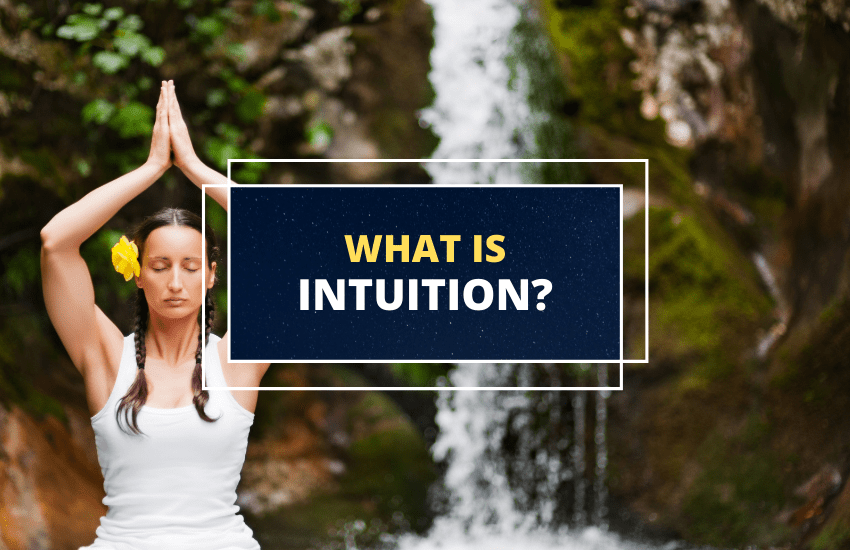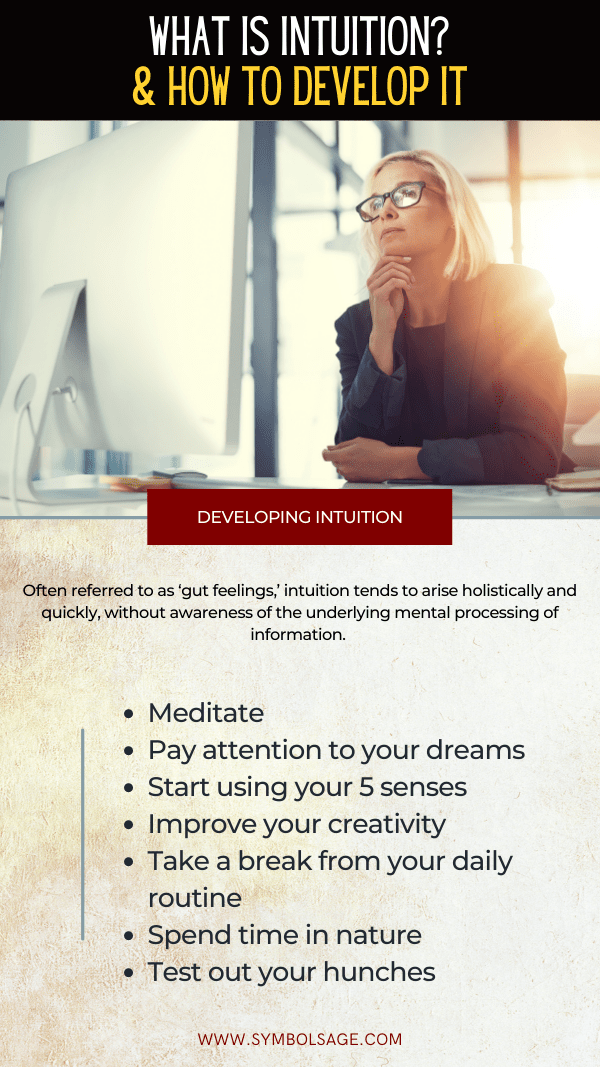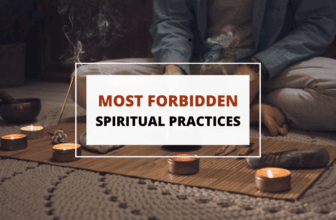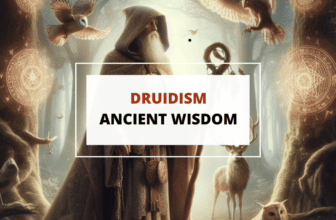
Table of Contents
Have you ever been in a situation that doesn’t seem right? For instance, you walk into a room and all of the sudden a looming feeling begins yanking at your gut. Or perhaps there’s a smell or sound irking at your inner sense of knowing.
Or how about this scenario: Have you ever had a huge to-do list and you’re unsure how to organize it? You know you should really go to the store first to sidestep traffic – and something’s telling you to do this first. But you change your mind at the last minute and end up going to the store later, only to realize your initial hunch had been correct – there’s huge congestion because of a car crash?
All of these potential and likely situations are varying aspects of intuition. They can encompass mundane daily activities or provide profound insight that can bring success or even protection.
Intuition Is Real
But what is intuition? Isn’t this just some mumbo jumbo that new age spiritualists explore? Contrary to popular misconceptions, intuition is not fake, a farce or some con-artist’s game. It is a real mechanism built into the workings of the human senses.
Intuition is that concept of how people can make choices and actions without effort of analytical thought; that these decisions come from a place deep within. According to a definition given by Psychology Today
“Intuition is a form of knowledge that appears in consciousness without obvious deliberation. It is not magical but rather a faculty in which hunches are generated by the unconscious mind rapidly sifting through past experience and cumulative knowledge.
Often referred to as ‘gut feelings,’ intuition tends to arise holistically and quickly, without awareness of the underlying mental processing of information. Scientists have repeatedly demonstrated how information can register on the brain without conscious awareness and positively influence decision-making and other behavior.”

Nudging the Skeptics
The idea of intuition has intrigued people for thousands of years. Even the ancient Greeks and Egyptians pursued life with the idea that intuition is a deeper form of knowledge that doesn’t require proof. This idea about “proof” is a modern concept and has turned many people into critics and skeptics about intuition being real.
But it is possible to observe the truth of intuition in action. Watch a Flamenco or Belly Dancer improvising; meaning there’s no choreography but they are dancing to the music on beat. They may not know what the music will be and yet they dance to the rhythm as if they’ve been dancing to it their entire lives.
Scientific Studies on Intuition
There have been many scientific studies on the subject of intuition. However, one of the more compelling ones comes from a team of researchers at the University of New South Wales in 2016. They have been able to demonstrate, in scientific terms, that intuition is a very real and tangible concept.
They discovered developing intuitive skills not only informs our decisions but it can also improve the way we make decisions. While more studies have to yet to support the results, their findings are rather convincing.
There is good reason to believe that people who use their intuition to make decisions are not only happier and more fulfilled, but they are also more successful. These researchers also found that using gut instincts allows for faster and more accurate choices.
The Experiment’s Design
The researchers designed their experiment to expose participants to images outside their own conscious awareness while they attempted to make an accurate decision.
College students were shown or given stimuli in the form of “emotional photographs” composed in a cloud of various moving dots. You can think of this in a similar way as seeing snow on an older television set. The participants then reported which direction the dot cloud moved, either right or left.
While one eye saw “emotional photographs” the other eye experienced “continuous flash suppression.” This would render the emotional photographs as invisible or unconscious. Therefore, the subjects never consciously knew these images were there.
This is because each subject had their own mirror stereoscope and this is what allowed for the continuous flash suppression to mask the emotional images. Therefore, one eye received these emotional photographs which were masked by the other eye receiving the flashing lights.
These emotional images included positive and disturbing topics. They ranged the gamut of adorable puppies to a snake ready to strike.
Four Different Experiments

The researchers performed four different experiments this way and they found people could make more precise and accurate decisions when unconsciously viewing the emotional images. They could process and use the information in a subconscious way because of unconscious recall – all without being conscious of it.
They found that even when people were unaware of these images, they could still use that information to make more confident and precise choices. One of the more surprising discoveries was how the participants’ intuition improved over the course of the study; suggesting the mechanisms of intuition can see great improvement with practice. The evidence for this came from the participants’ physiological data.
For instance, in one of the experiments, the researchers measured participants’ skin conductance, or physiological arousal, while making decisions about the clouds of dots. The researchers noted a marked difference in skin conductance that precluded behavioral intuition. So, even when they weren’t aware of the pictures, their bodies physically changed as a reaction to the emotional content regardless of their awareness.
Baby Steps to Develop Intuition
So, not only is it possible to develop your intuitive skills, it’s scientifically proven that you can do so. While you don’t have to undergo clouds of dots with flashing lights or visit your neighborhood spiritual guru, there are some things you can do on your own.
Figure Out Your Current Level
First, test where your level of intuition already is if you don’t yet know. This means keeping some kind of journal or diary. Start by recording how often you follow your gut instincts in general and what the results are when you do.
The phone is a good place to start. When it rings, see if you can guess who it is before you look at or answer it. See how many times you get it right out of 20. The point here is to do something simple but that has meaning for you.
Sample Exercises
When you get a handle on that, take it a little further. Organize your daily to-do list or your route to work based only on intuition, not logic or reason. Don’t analyze it or think it through. Once you make the list/decision, don’t vary it or change your mind (that is of course unless some emergency pops up).
You can also try using a deck of cards to call which ones they are. You don’t have to start specific, you can begin with the colors of the deck: red and black. If you ever master that, then try to call the suit. You can work it how you like, but remember, don’t memorize or count the cards. This must be a pure, unprepared event.
For each exercise, make a note of it in your journal. Indicate the date and what you did along with the time, if applicable. At the end of the day, jot down how successful you were. Then, compare each week. Do you see an improvement or impairment?
Some Things to Keep in Mind
Remember, this may be more difficult than you might at first realize. But that’s the thing of it; it’s not about thinking, it’s about “feeling” things. You’ll get a sensation in your stomach, gut or some other place deep within. It will send a signal to your brain, but your brain is not involved in the process.
So, prepare yourself to expect that these improvement tests will take time before you get a solid grasp for them. However, once you do, you can push things even more. Also, this aren’t precognitive or “psychic” experiences, these are decisions based on sensations within the present moment.
In Brief
Intuition is not some new age hocus pocus in focus. It’s a real psychological, physiological and emotional experience integral to the human condition. We can use it for something as serious as saving ourselves from danger or for something as mundane as escaping traffic or creating a to-do list.
Those who chose to rely on it seem to have a happier and more fulfilling life than those who solely opt for the rational. While both ways are necessary to a well-adjusted human being, the intuitional aspect is far too often passed off as a flight of fancy.
While there needs to be more scientific studies on the subject, the ones that do exist are compelling. It’s true they don’t “prove” intuition per se, but they do provide solid evidence for it. Plus, with so many ancient cultures having embraced the concept for centuries, it could be argued that there is some truth to it. It’s possible to develop it with patience, practice, determination and pure sheer will.








